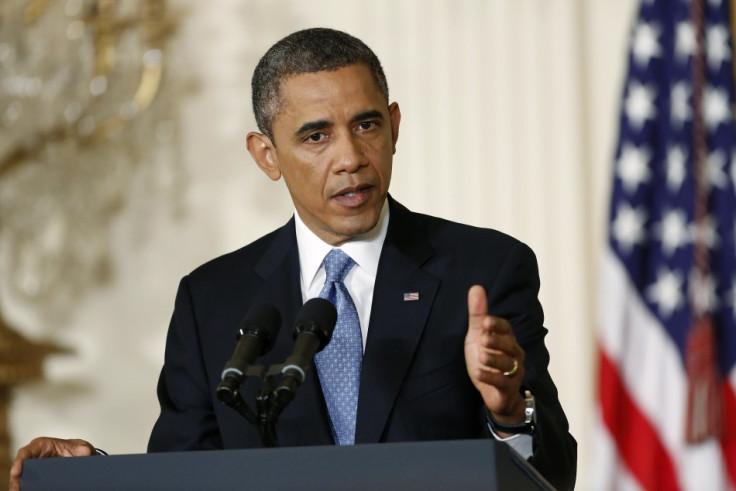Barack Obama Rejects Talks on Debt Ceiling and Spending Cuts
US expected to reach its debt ceiling by February

US President Barack Obama has said that he will not give in to any Republican demands on the spending cuts issue in exchange for raising the debt ceiling.
After the fierce political wrangling to avert the "fiscal cliff" crisis, US lawmakers are gearing up to face another fiscal debate, the government's borrowing limit. The country is expected to reach its extended $16.4tn (£10.2tn) borrowing cap in February unless lawmakers take steps to avert it.
At a news conference, the president rejected any possibility of negotiations, blaming his opposition for trying to exploit the situation. Republicans are seeking deep spending cuts to control the deficit before accepting a decision to raise the debt limit
"What I will not do is to have that negotiation with a gun at the head of the American people," he said.
A failure to raise the debt ceiling could result in US defaulting on its debt, pushing the world's largest economy into a fiscal crisis. Obama stated that if that happens, Republicans will be responsible for the consequences.
He added that America was not a "deadbeat nation" and that he was ready for any fiscal policy debate after the debt limit was pushed up.
"They can act responsibly, and pay America's bills or they can act irresponsibly, and put America through another economic crisis," he said.
"But they will not collect a ransom in exchange for not crashing the American economy."
A failure to raise the debt ceiling or even another political wrangling over the issue can impact the financial markets. The last debt ceiling debate between Obama and the Republicans in 2011 had sent markets into disarray.
US Federal Reserve Chairman Ben Bernanke, early this week, said that raising the debt ceiling was critical to avert a default, terming it "critical fiscal watersheds" for the administration in the coming weeks. He urged Congress to raise the cap to "avoid a situation where our government doesn't pay its bills".
In a letter to congressional leaders, US Treasury Secretary Tim Geithner too appealed for appropriate action. He said failure to do so will mean that the government will only have the "cash on hand", which will not be sufficient to meet the "existing obligations".
Responding to the president's remarks, Republican House Speaker John Boehner acknowledged the risks of the matter but said that raising the debt ceiling should be done along with spending reductions.
"The American people do not support raising the debt ceiling without reducing government spending at the same time," Boehner said in a statement.
"The consequences of failing to increase the debt ceiling are real, but so too are the consequences of allowing our spending problem to go unresolved. Without meaningful action, the debt will continue to act as an anchor on our economy, costing American jobs and endangering our children's future."
© Copyright IBTimes 2025. All rights reserved.




















